From legionnaire to MAN OF LETTERS
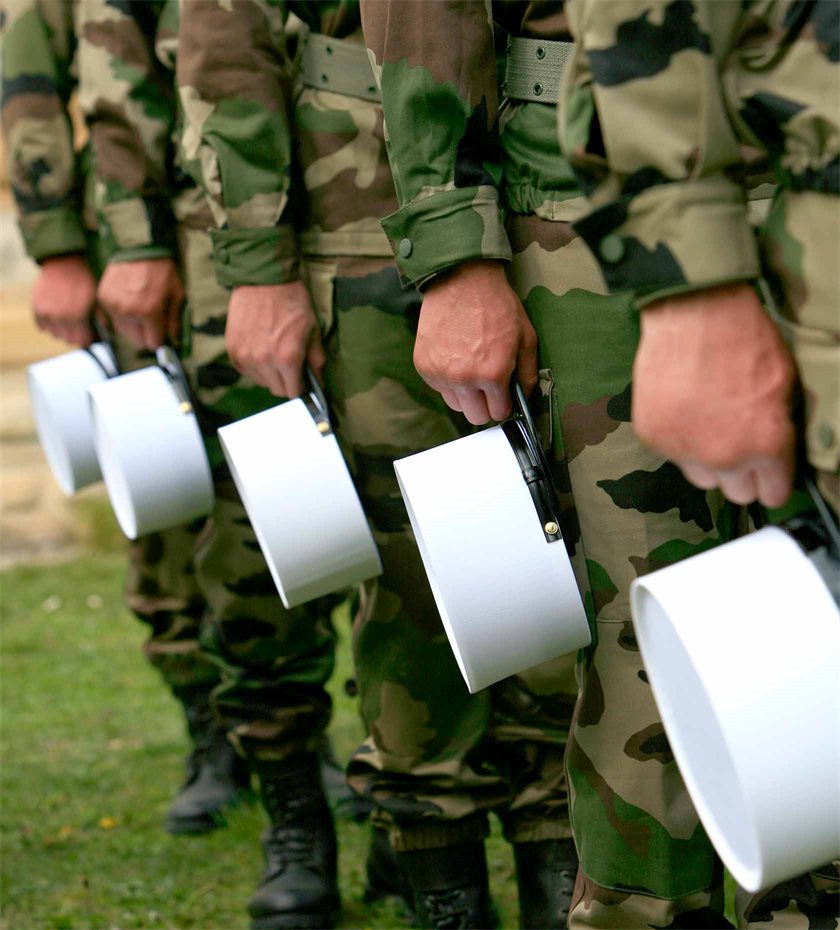
Peter Hovmand
The train glides gently to a stop at the platform The doors slide open and a young Greenlandic-looking man with short black hair rushes out. He quickly dons his rucksack and walks off quickly, like a forced march, heading for the stairway and tunnel below the station. A few seconds later he crosses Jernbanepladsen in the direction of Lyngby’s main street and pauses for a twominute respite at the flower shop.
The interview was set for 11:00! Not 10:59, not 11.01 but 11:00 precisely! Peter Hovmand is a man who demands punctuality in his life. On this Wednesday morning, it is only an apologetic SMS from the journalist that saves the day and of course the fact that he wasn’t the one who was late.
“Yeah, it’s probably the one thing that has stayed with me from my time as a recruit – almost 27 years since I turned up at the barracks – it still means so much to me that I prefer to meet up 40 minutes early for my students. I simply won’t tolerate the idea that it could me who arrives late,” says Peter Hovmand with wry smile.
The barracks he mentions were no ordinary Danish barracks. Peter Hovmand is recalling his time at Quartier Capitaine Danjou in Castelnaudary, a sleepy garrison town near Toulouse in Southern France. A place where the tone was far from friendly and collegial. When the corporal screamed with spite “Première section! Rassemblement dans le couloir!” the recruits had to rush out of the barracks and assemble in pre-determined lines. The corporal would quickly count to three and anyone who was not in position was punished with pushups or in the worst case, the corporal would ransack the living quarters and throw everyone’s property onto the floor, which would mean Peter Hovmand and the rest of the regiment would have to sort uniforms, boots and other items before they could turn in.
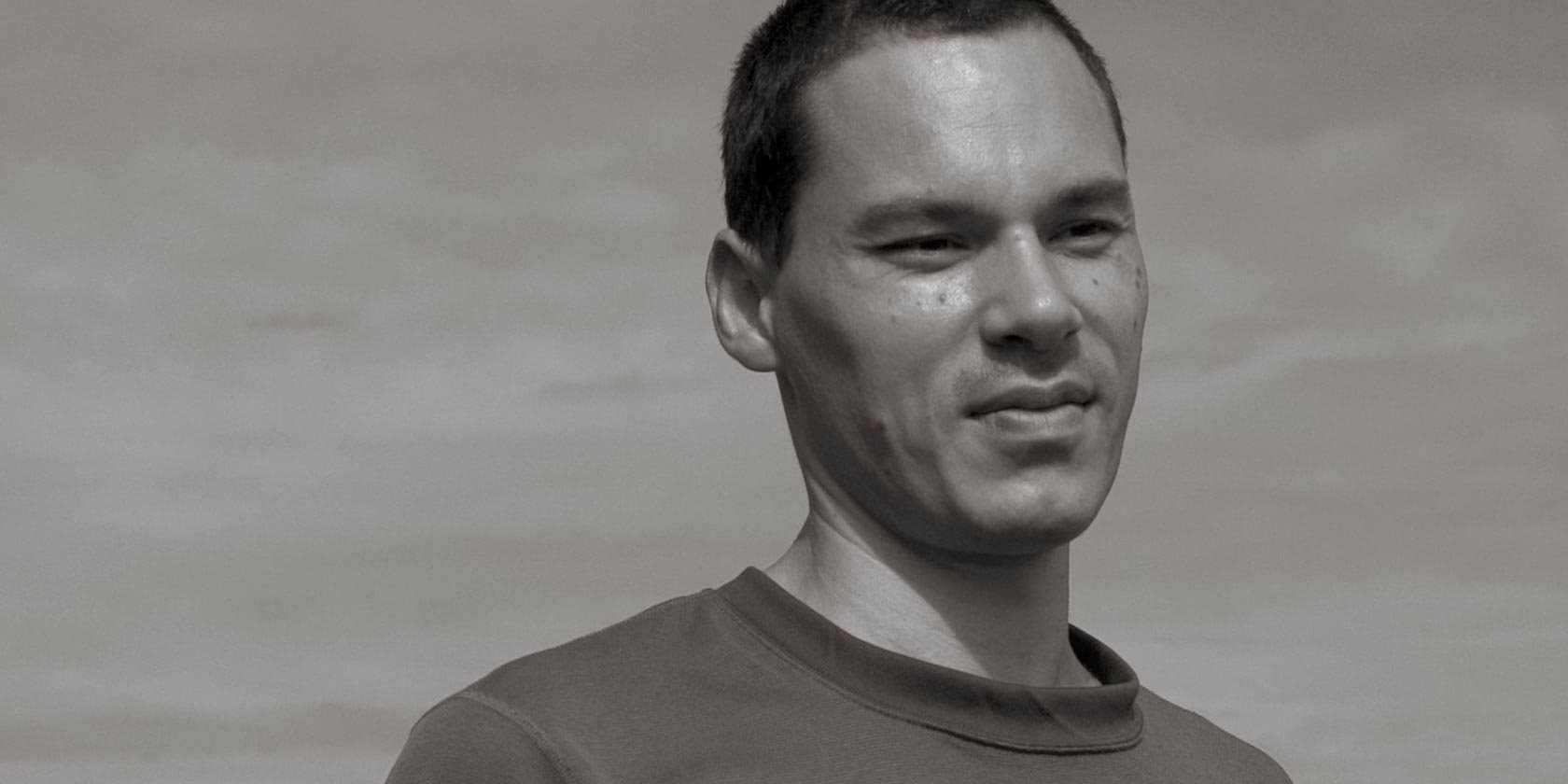
When Peter Hovmand was 18 years old he had had enough of secondary school. It was not because the lessons were too challenging. He was just tired of school. 1992 was not just the year when Denmark unexpectedly won the European football championship in Sweden. Thousands of kilometres away in the towns of Sarajevo, Tuzla and Srebrenica, a bloody civil war, which would cost 300,000 lives, was taking place in former Yugoslavia.
“I was very young. Full of energy. And I had a huge desire to make a difference. To give the demand for peace in former Yugoslavia some weight. This got me thinking about a career as a professional soldier. Denmark was active with peacekeeping forces. But I believed more was needed. An active peacekeeping force that could really stop the war and the suffering of the civilian population. I thought that France would be the likeliest country to get involved in this way in the civil war. That in turn led me to consider joining the Foreign Legion,” says Peter Hovmand.
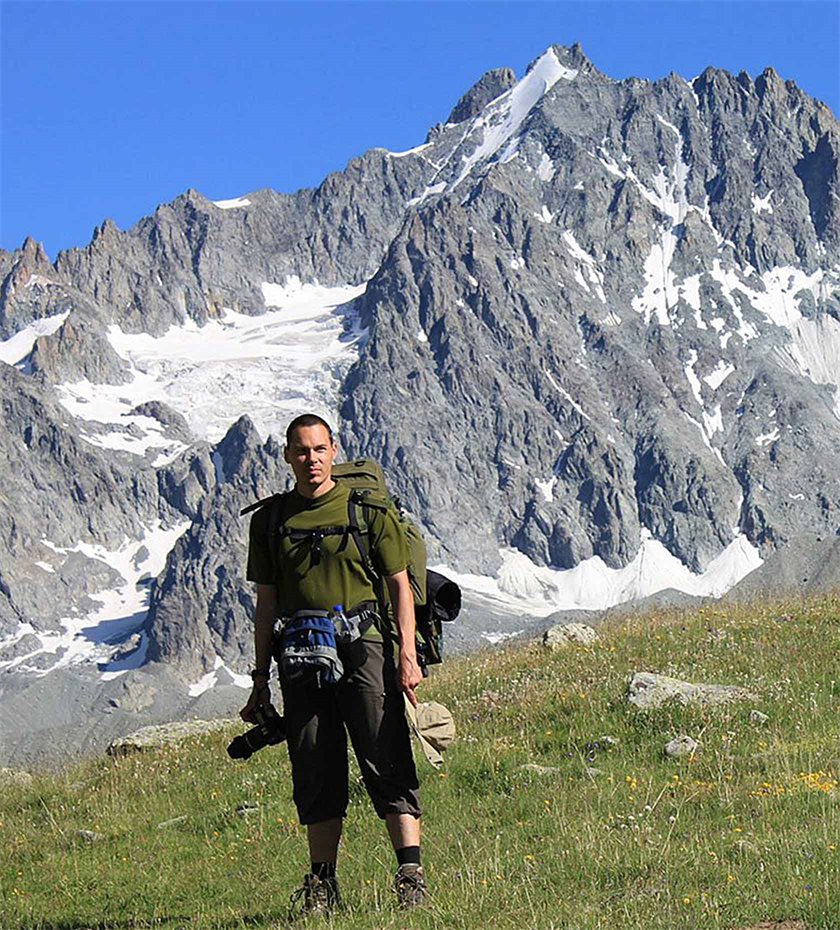
Even though his parents did not really understand his desire to drop out of high school and travel to Paris to join one of the hardest military schools in the world, he packed his bags, sold his music system and left.
“I also think it was a little to do with the feeling I quickly got that I was entrapped. When I was young, when things got too much, I would run away to Grib Forest. I loved wilderness. Uninhabited country. Most of all I liked reaching the edge of the woods and seeing the forest open up onto open land. Perhaps this liking for open expanses and freedom has something to do with my Greenlandic origins.”
French Foreign Legion Recruit
Peter Hovmand joined the Foreign Legion in Fort Nogent in Paris and was sent with a new team of recruits to the south of France and assigned to the 4th Foreign Legion based in Castelnaudary, a small, sleepy town of around 12,000 residents in the heart of the Languedoc- Roussillon region.
“We were a very mixed bunch. I stayed close with the other English-speaking recruits. But we were from all over the world. There were English and Americans with experience in the Royal Marines and the US Marine Corps. There were Russians who had been paratroopers in special ops military units. It was strange and it was obvious that many people had completely fictitious names, some of them deliberately funny, like Bill Gates from the USA. These were the people who needed to be anonymous and have a new identity. To start with it was cleaning, cleaning and more cleaning while we waited to be sent out to La Ferme – The Farm.”
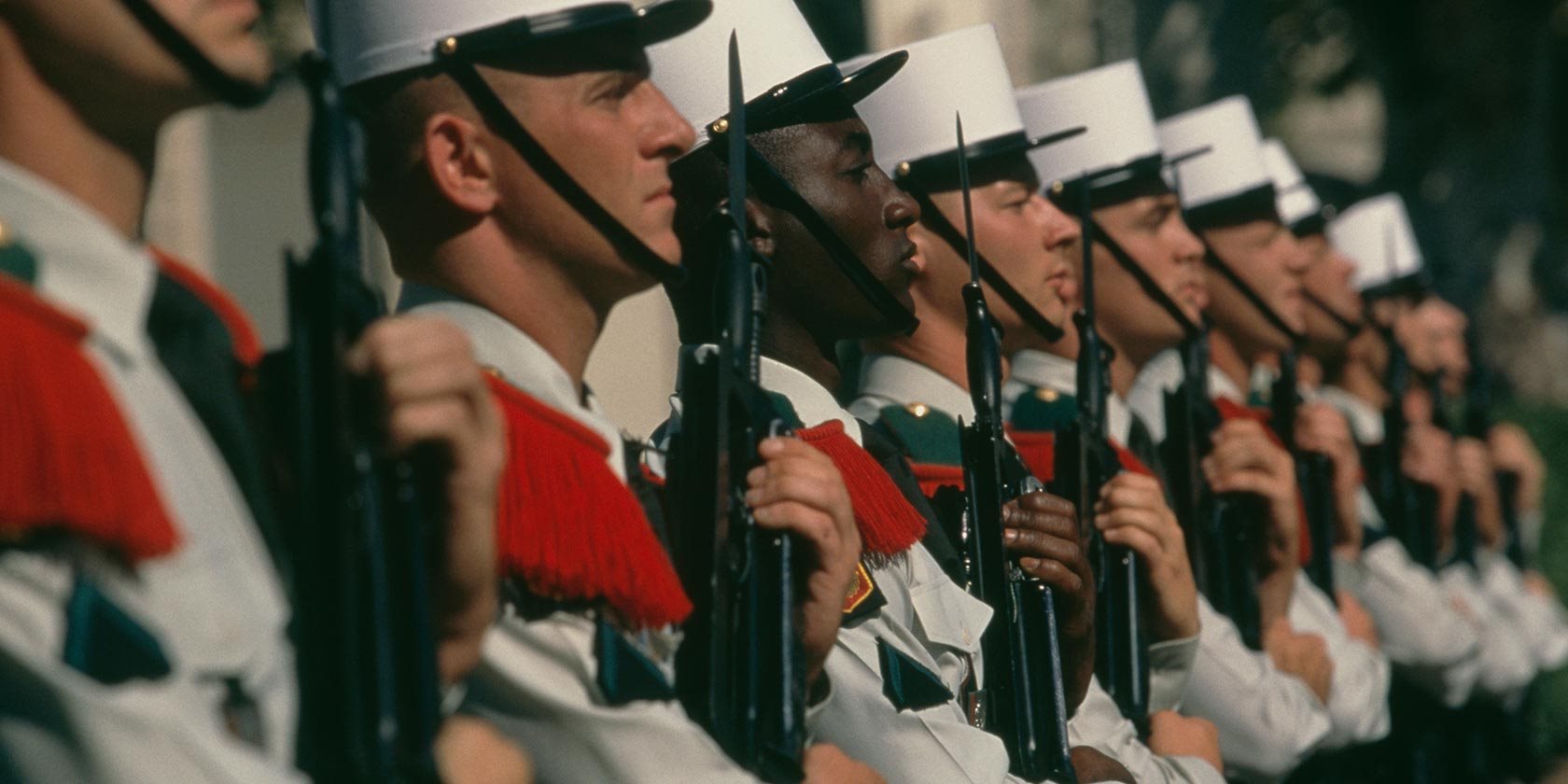
The men also received their military gear: a rucksack with sleeping bag and poncho, a basic belt with magazine bags, drinking bottle and of course, a helmet. The first day they learned to fold and stack their clothes in a very precise way. They had not yet seen any weapons. “We looked forward to getting weapons. Because for a whole month bootcamp was about discipline and sorting the recruits; the Legion removing the ones they decided did not have what it takes. It was said that it was supposed to be the hardest military basic training of its kind.”
A hard month followed, with merciless discipline and corporal punishment when mistakes were made. It was also a month of hard physical training and many kilometres marching on country roads in full combat gear. “The first time was difficult. Above all because it was all in French. It was a real nightmare for those people who couldn’t understand French. We could see what the French-speaking recruits did. We did the same. The corporals’ faces were livid with loathing. We were not soldiers. We were helpless civilians.”
Chante en marche – the marching song
“It’s a little weird,” says Peter Hovmand. “We were part of the most legendary military units in the world. We could be sent to war zones anywhere that lay inside France’s areas of interest, where we were expected to do our duty without asking any questions. To a great degree, the training was about breaking down the different barriers the individual recruit had. To get him to accept he was a part of a unit. A collective. But anyway, a hallmark of the legion’s means to get us to see ourselves as part of the unit, was through song.”
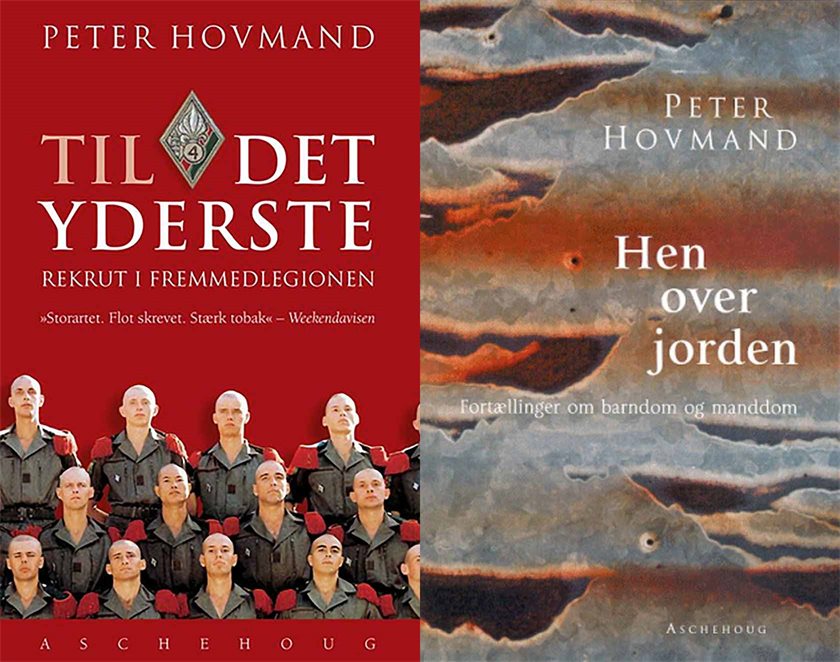
One night, when the men had been marching for over 20 hours, the marching song would be drilled into the recruits’ heads once for all. Vive la Légion Éntrangère! Marching across a stubble field, dead tired, exhausted, they sang the Legion’s marching song. Over and over.
“It was crazy. And yet that night was magic. In a way lyrical or poetic. Because I understood how weak I was in reality. With the song my nervousness disappeared. We all felt a sense of cohesion and I experience an inner calm, which stayed with me for the rest of the night. And a calm certainty that when things became extreme, I could find the strength and will to continue,” says Peter Hovmand.
Paratrooper in former Yugoslavia or ...
The month-long Boot Camp at The Farm ended with a 100 km march. “La Marche képi blanc” refers to the white uniform cap which was part of the legionnaire’s parade uniform. A march that should turn the volunteers – “Engagées Volontaires” into legionnaires. Back in the barracks in Castelnaudary, Peter Hovmand completed his basic training and fulfilled his wish to continue his military education in the legion’s 2nd Paratrooper Regiment, which was based on Corsica in the Mediterranean and he gained his wings there.
His time at the base in Calvi on Corsica was very different from that in Castelnaudary and at The Farm. There was plenty of food and there was also plenty of hard theory and practical training. And obviously, parachuting from a C-160 Trasnall transport plane at a height of just 190 m. “With gear we weighed around 130 kg. A shapeless rucksack and rifle and a parachute on the stomach. We fell at about 30–40 km an hour. A couple of seconds before we landed, we had to release the rucksack, which hung in a single line below us. Then suddenly it was over.” The last exercise was carried out at night. On one of the jumps, Peter Hovmand landed in a tree. The branches broke and he fell heavily to the ground. “The corporal was very pleased that the parachute was not damaged!”

The next day, Peter Hovmand received his wings and could call himself a Paratrooper in the Foreign Legion’s ‘2e Régiment Étranger Parachutistes 2nd corps”, otherwise known as 2REP. The regiment was formed after the first paratrooper regiment fell into disfavour and was disbanded after its involvement in a failed military coup in Algeria in 1961. The failed coup was intended to prevent a negotiated solution in Algeria’s struggle for self-determination which had gone on for seven years.
But even though the paratrooper regiment was trained to be sent in as reinforcements in former Yugoslavia – and this was one of the main reasons why Peter Hovmand joined the legion – Europe never agreed on how to stop the civil war with force, and instead, the paratrooper regiment would be stationed in Djibouti or Chad. “From my viewpoint, the European countries left a horrible mess. They let the killing continue until the American bombers forced the parties to negotiate a peace solution. But because we were not to be sent to the Balkans also ended my sense of engagement.” Peter Hovmand used his last chance to terminate his contract with the Foreign Legion and returned home.
However, cancelling his contract with the Foreign Legion proved to be as difficult as his basic training at The Farm. “To begin with, there was a completely fixed line of command in the legion. A line of command that must never be broken. But I had made my decision. There was obviously military training at the barracks in Calvi. But there was also endless cleaning and washing. And now that Europe had let meaninglessness rule in Bosnia and Serbia, I thought that I might as well go home and finish my education rather than stand here in Corsica and wash dishes.”
“I spoke with the French corporals about my wish to leave the legion. It was a dangerous way to go about things. They could have easily sent me om the first plane to French Guyana and jungle conflict training. But the corporal would talk with our lieutenant, who would talk with the captain, who would talk with ....” Getting permission to terminate his contract was definitely difficult for Peter Hovmand. But he had read the small print and knew that the first six months was actually a trial period.
Mother broke the line of command
“The first conversation with the lieutenant ended in uncertainty. He contended that the line in the contract about the trial period in no way entitled a legionnaire to terminate his contract. After that I felt like I was lawless. People in my platoon stayed away from me. Others had left the legion. They were deserters! I was the only one to have said it out loud. But the lieutenant had not passed on my request. He was simply waiting until my trial period was over.”
The days were filled with extra tidying up, cleaning weapons and cleaning. But Peter Hovmand had also spoken with his mother in Denmark telling her that he wished to leave the legion. She contacted the Danish consulate in Marseilles – and from there managed to contact a colonel in the Foreign Legion’s headquarters in Aubagne.
“Personally, I still wasn’t sure whether my request could end up with me being me thrown in the slammer, beaten up or sent to Guyana. But one day, after the lieutenant tried for the last time to convince me to stay, I was called in to see the captain. Five minutes later I had signed a piece of paper. My mother – not I – had in practice broken the line of command. Maybe a sign of new times coming to the legion.” A few weeks later, Peter Hovmand was back in Aubagne. And with the new feeling of freedom, on his way to Denmark.
Back in Denmark
Peter Hovmand completed his education in Denmark, where he took a Higher Preparatory Examination (HF) and finally graduating from the University of Copenhagen with a Master’s Degree in Literary Studies. “Literary Studies? Right enough, before my time at the Foreign Legion, literature was something I was good at. I loved to read – and deep within me I dreamed of becoming a writer. At the very least, it was one of the things I was good at, whereas mathematics was a bit of a slog.” Military life wasn’t quite finished with Peter Hovmand. After he finished his studies he did his National Service and was employed as a Private First Class. In fact, he was earmarked to be shipped with “Hold 8” in Afghanistan, though ultimately, he was never sent.
He was employed as an upper secondary school teacher – first in Esbjerg and then at Lyngby Handelsgymnasium, where he still teaches. But there was also time to write. To begin with, his experiences in the Foreign Legion led him to write a military memoir “Til det yderste”, published in 1998. In 2014, he published a number of short story collections and the novel “Grødhoved”, which deals with a wounded soldier’s long journey back to civilian life.
Coma
The long interval between publication of his first book and 2014 was not exactly of his own choosing. During a hike in France, Peter Hovmand was found unconscious. He was taken to a hospital in Montpellier and remained there in a coma with lesions to his brain. Officially, because of a lack of witnesses, the injuries were attribute to the result of a fall. “But I’m not the type who falls down! The day before I was found unconscious, I encountered some legionnaires on the train. It was Bastille Day. So quite a bit of alcohol was consumed. But it wasn’t necessarily awe-inspiring for them to sit opposite a lapsed legionnaire like me. I don’t know if it was one of those guys who hit me. I just don’t know. But it was definitely one of them who sounded the alarm.”
It was the start of a long fight to return to normality. “I couldn’t talk. I only knew a few sentences. I couldn’t write either. Mixed everything up. And when I could finally start to write again, no one could read what I had written. “But by working really, really hard – and with a lot of professional help from the Center for Rehabilitation of Brain Injury, I regained my language competency. Luckily, also the ability to write and teach again.”
Discipline with a glint in the eye
Peter Hovmand’s military training – both in the Foreign Legion and in the Danish army – has left its mark. He hates to be late. He would rather turn up 30 minutes early for an interview than risk being late. He also spends a lot of time preparing and eliminating the chance of mistakes. And this also influences his teaching. “As a secondary school teacher you more or less start without any kind of pedagogical background. So I also use my military experience in my teaching. I don’t treat the young people as soldiers. But, especially with the unruly young men in the class, I build the whole thing up like a game where they know I’m keeping an eye on them. I see many small details. I’m the one in charge, where discipline has an impact. But it’s done with a glint in the eye.”
New stepping stones
Peter Hovmand’s life has had many highs and lows. And he is definitely no longer the same person he was when he was 18-year-old man who was tired of school and travelled to Paris to join the French Foreign Legion. “I was probably something of an introvert when I was younger. I also had the feeling that strength meant something. I was probably more to the right than in the centre politically. Get yourself together. Don’t be lazy. I didn’t really understand weakness. But after the incident, when I lost my language, I gained an understanding of other people’s weakness. I became more sensitive. And even a little more religious.
“I’ve learned the hard way. But that’s been an advantage for me. Both when I’m teaching and when I’m writing. And maybe I have taught myself about how important it is to change track once in a while. “It may well be that things are running smoothly for a couple of years. But something new should happen too,”says Peter Hovmand. And something new must happen in Peter Hovmand’s life. Today, the 45-year-old teacher longs to create something new in his life. “I have to create something new. My life has consisted of a number of choices – and some hard battles. Not just in the Foreign Legion. Now I must move on. I want to have the time to write again and perhaps give presentations. Maybe with the title ‘From Legionnaire to Man of Letters’,” says Peter Hovmand. Peter Hovmand is currently writing a new book about the vulnerable people he met when he lived in Esbjerg.
French Foreign Legion: FOR LIFE AND DEATH
The Foreign Legion is perhaps the most famous military unit in the French army. It has a history of great courage and endurance. But also a history about recruits who needed new identities.
There are many myths surrounding the Foreign Legion and they are almost impossible to dispel. One is that the legionnaires are a band of small-time criminals from all corners of the world, who need new identities and a new life. Even though the myth sometimes has a grain of truth in it from a historical perspective, new recruits who have a tarnished past are removed long before the recruits reach the training regiment in Castelnaudary in southern France.
But the French elite corps still welcomes new recruits regardless of nationality, race or religion. The legionnaires sign a five-year contract, which can be extended. For many of them there is the rewarding inducement that after three years of service they can apply for French citizenship. Another benefit, is that after 15 years of service, they are entitled to a lifelong pension. The foreign legion has over 10,000 soldiers who have all undergone hard physical training and a daily routine based on extreme discipline. The French Foreign Legion was created in 1831 in Algeria where a large number of French troops were stranded. The main aim of the Legion was to secure the new French colonies in North Africa and the Far East.
The legion is famous for its bravery and endurance. It is especially famous for a single battle at Camerone in Mexico, which is still celebrated every year on 30 April. Sixty five legionnaires faced an opposing force of 2000 Mexican soldiers. The legionnaires held out for nine hours and forced their enemy to pay a high price for victory. Only three legionnaires survived the battle.
Before the battle of Camerone, the corps was associated as the worst the French army had to offer. But now even in places far from France, they were recognised as an elite force. Today, the French Foreign Legion has fought in all of the military conflicts that France has been involved in; most recently Afghanistan and Mali.
The foreign legion has 18 recruiting offices in France, where men from all over the world arrive every day, intending to join the world’s sharpest army. All of them are taken to the camp at Aubagne, where after 20 days of exhaustive evaluation, they sign a contract and are sent to the training school in Castelnaudary for four months of military training.